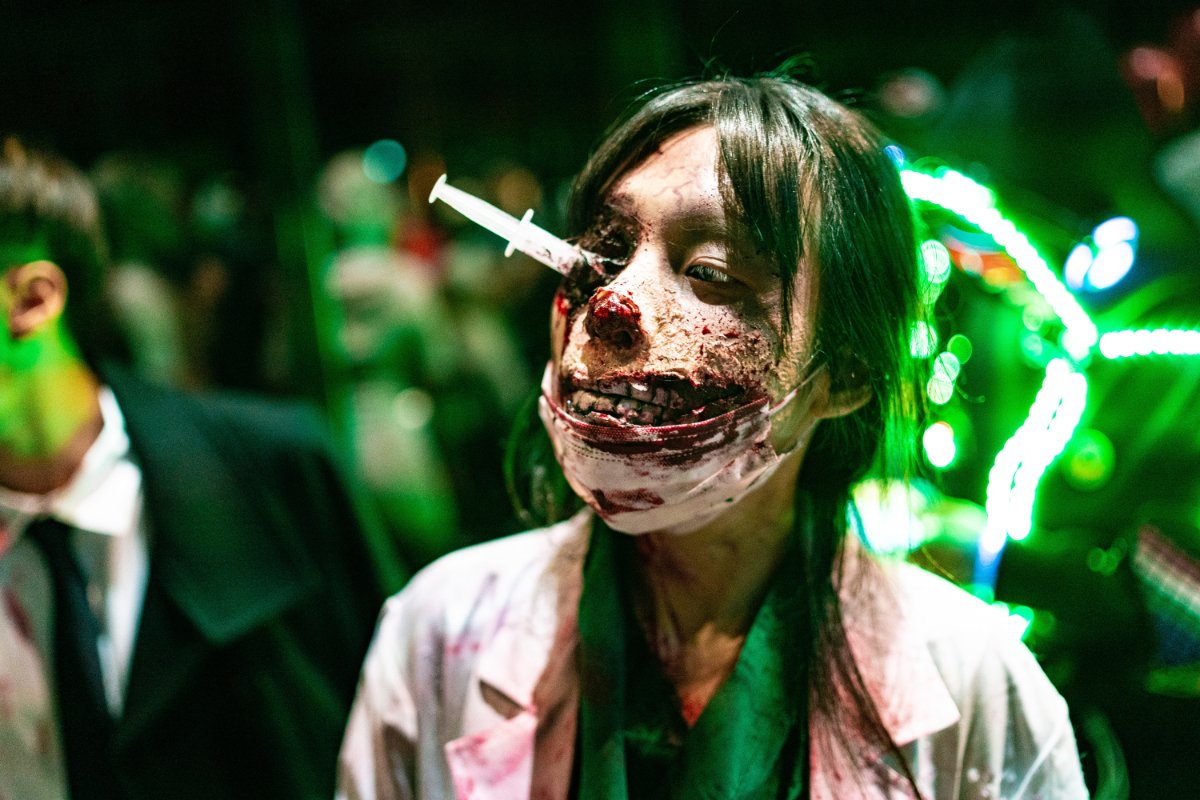KEY POINTS
- Losses that are not accepted can haunt a person, like zombies that refuse to die.
- The continuing fantasy that something about what is remembered could still change re-animates the dead.
- Accepting the finality of a loss often means transforming anger into sadness.
As Halloween approaches, zombies are everywhere. Their wan faces peer out from store windows, their droopy bodies decorate apartment lobbies, and ads for their TV shows scream from the sides of buses. They show up in all sorts of things, from Paul Krugman’s book about economics to spoofs of Pride and Prejudice. Even my online yoga teacher describes outstretched arms with wrists turned down as “zombie hands.” It’s definitely zombie season.
I’ve never been particularly interested in zombies. In fact, I find them creepy. Since I tend to avoid sci-fi and horror (except Star Trek the Next Generation—but what therapist can resist Freud on the holodeck?) I’ve been pretty good at steering clear of zombies. Until now. With loss and mourning all around us, I’ve started to talk to patients about zombies.
I’m not a child psychiatrist. But when I mention zombies to patients struggling with loss, they get it. Think about it: Zombies are corpses that are magically reanimated. They lack speech and feed on human flesh. Their danger lies in their ability to turn others into zombies and in their proximity to death. They are nearly impossible to kill because they’re already dead.
To me, that sounds a like a bad memory—particularly of someone or something that comes back to haunt you. Something from the past that can’t be brought back to life or redone. An abusive or neglectful parent who has died, a boss who wrongly fired you, or a partner who left without resolution. These are the people who populate our minds in the middle of the night; whom we re-animate with our anger, allowing them to walk through the relationship graveyards of the wee hours. We remain angry with them long after they are gone. “Why didn’t you understand how valuable I was?” we endlessly ask them in the deep of night. “Why couldn’t you ever say you loved me? How could you have left without an explanation?”
Only human flesh satisfies the zombie; that’s true here too. We feed our midnight zombies with brain cells that could be creatively used elsewhere were they not stuck on the living dead. Although our zombies seem to pop up on their own, it’s our willingness to feed them that keeps them in their half-dead state.
It’s not just being remembered that creates the zombie; we have memories of many people and things that rest in peace. Some of those are warm memories of loving people. But not all of them. We have bad memories of difficult people and situations that don’t become zombies. It’s the continuing fantasy that something about what is remembered could still change that re-animates the dead.
Let’s consider Devon. After his parents divorced, Devon only saw his father once a year—for their annual fishing trip. They stayed in a remote cabin that Devon’s father owned. Starved for affection from his father, Devon clung to sweet memories of fish, sunshine, and campfires. Remarried with three daughters, Devon’s father joked with his son, saying, “The women in my life hate this cabin. You’re the only one who’d ever want it.”
As Devon grew up, his father communicated with him less and less. With a loving life partner and a son of his own, Devon was not aware of any hopes for a closer parental relationship. When his father died, he attended the funeral and discovered that his half-sisters would inherit the cabin. Although he hadn’t thought about it much over the years, he was now obsessed with the cabin. He thought about it all day long. He consulted a lawyer about contesting the will. He woke up in the middle of the night and replayed the 30-year-old conversations about the cabin he’d had with his father.
Devon had created a zombie.
His obsessive rumination—“How could he have done this? I can’t understand it!”—worked to keep alive the possibility that something could change. On the most surface level, he imagined that he could get the cabin. On a deeper level, he imagined that he could get his father’s love. As long as Devon was enraged, his mind kept those possibilities alive and the zombie fed. With the urging of his partner, Devon consulted a therapist, who, over time, helped him realize that he would always have the heartbreak of having been abandoned by his father. That would never change. Devon’s rage gradually abated and transformed into sadness. Deprived of its nightly meal, his zombie slunk back to its ghostly resting place.
Most of us will animate a zombie at some point in our lives. It’s natural to wish to change things that can no longer change. And it’s human to be angry about being ill-treated or misunderstood. When we let go of anger, we’re not necessarily capitulating or forgiving; we’re accepting that which we can’t change. And once we do that, we stop feeding our zombies. I can only speak for myself, but that’s worth a good night’s sleep—even on Halloween.
Read the original article here >>>>>>











